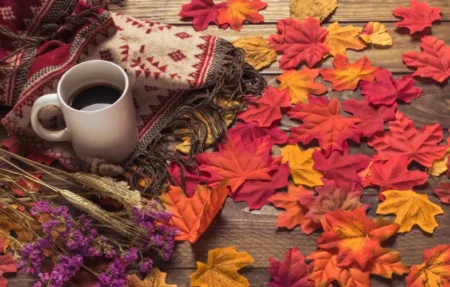 Autumn has its own rhythm. The air cools, the light softens, and the world slows down. But for many people, that shift brings something else too — tiredness that doesn’t go away. You sleep enough, but still wake up heavy. You drink coffee, but the energy never really arrives.
Autumn has its own rhythm. The air cools, the light softens, and the world slows down. But for many people, that shift brings something else too — tiredness that doesn’t go away. You sleep enough, but still wake up heavy. You drink coffee, but the energy never really arrives.
It’s not laziness or lack of discipline. It’s the body asking for a different kind of fuel. The same way nature rests and saves strength for spring, people need to learn how to renew energy — not chase it.
The Myth of Endless Energy
Modern life makes us believe we should feel energetic all the time — every season, every day. But energy isn’t permanent; it’s a rhythm. In summer, sunlight keeps hormones like serotonin high, making us active and social. In autumn, light decreases, melatonin rises, and the body naturally wants to slow down.
You can’t fight biology — but you can work with it. The goal isn’t to force summer energy into winter; it’s to find a calmer kind that lasts longer.
Food That Feeds More Than Hunger
When days get colder, we start craving heavier food — and for a reason. The body wants warmth and grounding. But not all comfort food gives comfort.
Energy doesn’t come only from calories; it comes from nutrients that stabilize mood and keep your metabolism steady. Whole grains, root vegetables, fish, eggs, nuts, and seasonal fruits give slow, steady energy. They help balance blood sugar and prevent the sudden crashes that make you feel exhausted an hour after eating.
Sweet cravings often mean your body is looking for quick fuel. Instead of fighting them, try giving it real fuel: something warm, colorful, and alive. A baked apple with cinnamon does more for your energy than another espresso ever could.
Light as Medicine
Autumn steals sunlight before we notice. One week you’re leaving work in daylight, the next it’s dark by five. That sudden lack of brightness affects hormones directly — especially serotonin, the one that keeps your mood steady.
So go after light intentionally. Sit near windows. Step outside even for five minutes in the morning. Take your coffee by the door, not at your desk. The body reads light the way it reads food — as nourishment.
Even artificial light can help. Many people use light therapy lamps during darker months, not to trick the body but to remind it what daylight feels like. It’s a small habit that keeps the inner clock from drifting too far.
Movement That Gives, Not Takes
When you’re tired, exercising might feel impossible. But the right kind of movement doesn’t drain you — it recharges you. The trick is to lower intensity, not stop completely.
Autumn energy isn’t about running fast; it’s about moving deeply. Walks, stretching, yoga, dancing — anything that gets you breathing and warms your body without exhausting it.
The body stores stress in muscles. When you move gently, you release it. It’s less about burning calories and more about letting the body exhale what it’s been holding in.
Rest Without Guilt
One of the hardest lessons to learn in autumn is that rest is not the opposite of productivity — it’s part of it. Nature doesn’t bloom all year, and neither do you.
The more you fight tiredness, the longer it stays. Rest isn’t a reward you earn; it’s a tool you use. It can look like sleeping more, but it can also look like doing less. Ten quiet minutes before bed with no screens do more for your nervous system than an extra hour of scrolling.
When you let yourself rest without guilt, your energy starts returning on its own.
Emotional Warmth
Energy doesn’t come only from the body — it comes from connection. Humans are wired for it. When days get shorter, isolation grows naturally. People go home earlier, talk less, stay online more. But that loneliness drains energy faster than cold weather ever could.
Autumn is a season for small connections — slow dinners, calls with old friends, a walk with someone who listens. Warmth multiplies when it’s shared. Sometimes, the most powerful way to recharge is simply being near people who don’t ask you to perform.
The Small Rituals That Ground You
Rituals create rhythm, and rhythm creates energy. Lighting a candle before dinner. Drinking tea from the same mug. Writing a few lines in a journal at night. These things look small, but they anchor you.
The brain loves predictability — it feels safe when it knows what’s next. When life feels safe, it spends less energy defending itself, and you feel less tired. That’s why simple habits matter so much more in dark months. They tell your nervous system: we’re okay.
The Bottom Line
Energy in autumn doesn’t come from trying harder. It comes from slowing down with purpose — eating food that truly nourishes, finding light where you can, resting before you crash, and letting connection warm you.
This season isn’t about losing energy; it’s about learning where it really comes from. Not from caffeine or constant motion, but from care — quiet, steady, and human.
Because sometimes, the most powerful thing you can do for your energy is to stop running after it — and let it find you instead.
Picture Credit: Freepik
